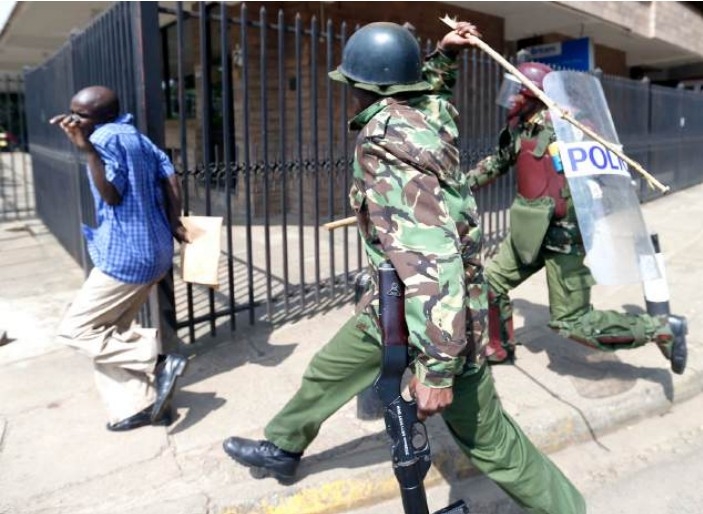@ppcheti
The donkey sector in Lamu is under-explored and sneered upon as partakers of this trade are often perceived as illiterate and poor.
The donkey business has equally been seen as a reserve of the classless citizens of this region.
However, donkey owners in Lamu are raking in millions annually from the otherwise ‘dirty’ and ‘despicable’ trade.
A normal donkey owner makes not less than Sh10,000 a day in Lamu island, depending on the assignments.
Donkey owner Saeed Ahmed, 28, quit a well-paying county job to focus on the trade.
He says the lucrative trade has seen graduates swallow their pride, drop their degrees and fully immerse themselves in the donkey transport and cargo business.
“Back then, it was just old men doing this. Now, more young people are discovering that they can actually make money from the trade. I have friends with degrees who are fully into the donkey business,” Ahmed says.
For Ali Mohamed, 26, failure to secure a white-collar job after his college studies in 2011, pushed him into the business.
Looking back, Mohamed says he made the best decision as the job pays him five times better, than what an office job would.
He owns 15 donkeys and earns between Sh5,000 to 10,000 a day.
Mohamed transports construction materials, farm produce and any other moveable cargo, within the archipelago.
His clients include hardware's, construction sites, shops, groceries, butcheries and schools.
“I started with two donkeys, which would fetch me between Sh1,000 to 1,500 a day. With time, I saved some of the proceeds and bought other donkeys. I now have 15 and still plan on adding more,” Mohamed said.
He has since made a name for himself in the donkey transport business and is proud and content.
Mohmed says he would not trade his job for any other.
Lamu island is a traditional town that relies on donkeys for transport.
Mohamed says this has made his work easier as donkeys have become the predominant mode of transport.
“I have established a good client base and I am on call daily. Sometimes, I have to cancel some trips because they are many and have to be rescheduled,” he says.
Mohamed who makes not less than five trips a day with all his donkeys, charges a minimum of Sh600 per trip.
“The amount could go higher depending on the place and time. Five trips of Sh600 each transporting bags of cement comes to about 45,000 or Sh25,000 for 10 donkeys a day. I can’t earn that amount in an office in a month,” he says.
Another donkey business owner Omar Kidege has been in the industry for more than 35 years.
He says through it, he has sent his children to university and has been able to sustain himself.
Kidege however said the misconception that the donkey business is a reserve for poor and dirty people, has made society look down upon the trade and its partakers.
“People respect those who work in offices. Those who wear ties and suits to work every day. However once you introduce yourself as a donkey trader, faces change and people frown and sneer. I don’t mind it all because it brings me good money,” he said.
Kidege has six donkeys and makes not less than Sh3,500 a day, in a good month he earns up to Sh108,000.
“Some of those in offices earn not even half of that, that’s why I am not quitting soon. I urge young men to explore this industry, instead of waiting for white-collar jobs that might never come,” he said.
Ali Abdulrahman who has been in the trade for the past ten years says he would never prefer any other job.
An economist by profession, Abdulrahman said he turned town a Sh30,000 a month job offer.
He said he preferred to remain in the donkey trade due to its handsome perks.
“The office job would have required me to work from 8 am to 5 pm, for Sh30,000 a month. I told them no. I now make the same amount in a day or two,” Abdulrahman said.
A section of this trade also involves rearing donkeys purely for sale.
Yusuf Hussein, 78, who has been doing so for the last 45 years says it’s equally fulfilling and lucrative.
He said one donkey goes for between Sh30,000 to Sh100,000 depending on the breed, age, colour and purpose for which it's being acquired.
There are two types of donkeys; the luxury donkey and the cargo donkey.
“The luxury donkey is for entertainment purposes such as taking part in races, while the working donkey transports cargo. The luxury one sells for slightly higher than the working donkey,” Hussein said.
He says a mature fully-trained working donkey goes for between Sh45,000 to Sh60,000, while the luxury donkeys cost between Sh80,000 to Sh120,000.
Donkeys are the major means of transport in the more than 35 islands within the Lamu archipelago. Lamu Old Town has more than 3,000 donkeys.
The donkeys are part of the ancient charm of Lamu Old Town.
The town is a UNESCO world heritage site with a unique culture and heritage that continues to attract tourists each year.
However, there have been growing concerns over donkey owners refusing to retire old donkeys despite their old age and fragility.
Donkey rights activist Sauda Kassim, 52, says working donkeys are supposed to be retired from the ages of 10 to 15, depending on their physical state.
“It's inhuman that some people are blinded by money and keep these donkeys working, even when they can barely walk. In such cases, they just drop dead,” he said.
(Edited by Bilha Makokha)

















